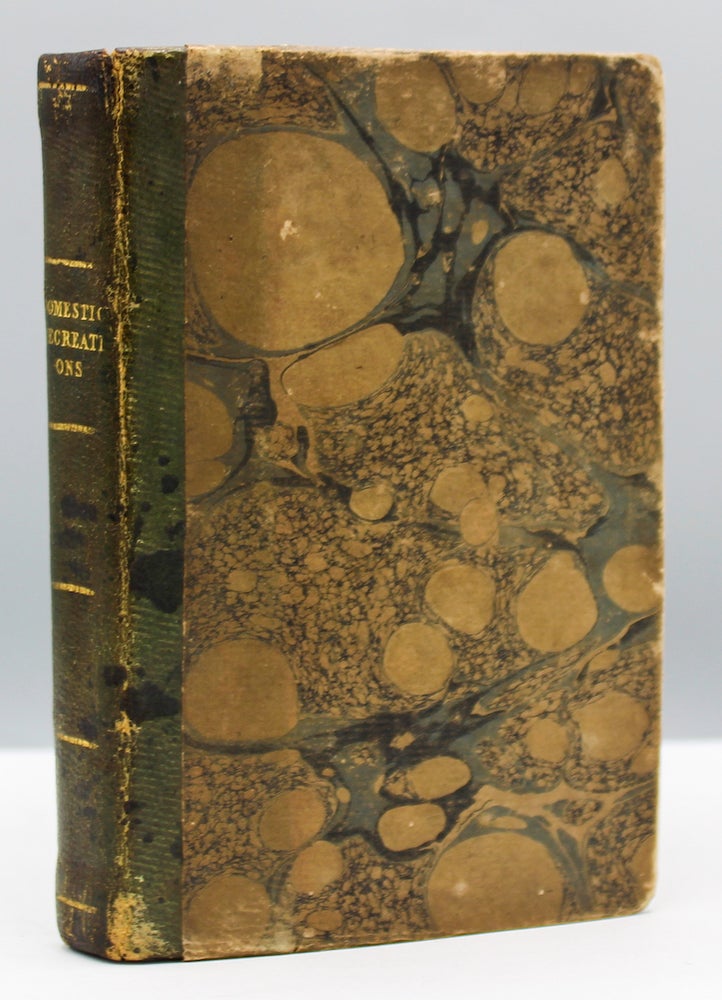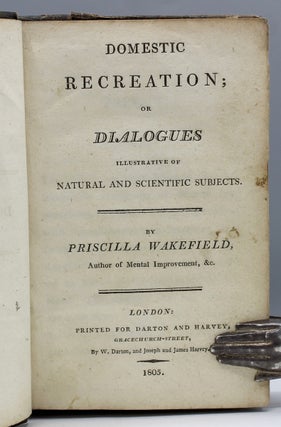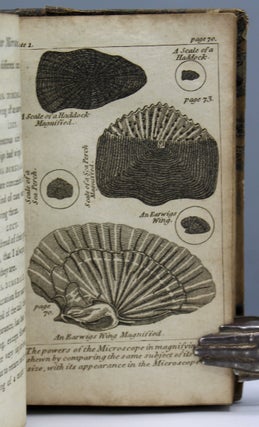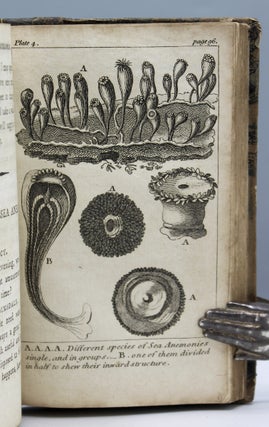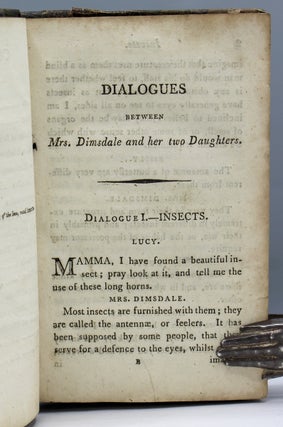Domestic Recreation; or Dialogues Illustrative of Natural and Scientific Subjects.
London: Printed for Darton and Harvey, 1805. First edition. OCLC records just one copy at the British Library. Domestic Recreation was composed in the then-burgeoning style of “progressive pedagogy based in domestic conversations; mothers often teach their own children, and girls receive as much attention as boys,” (Oxford DNB). It covers subjects like the anatomy of the human eye, rainbows, sea anemones, salts and minerals, insects, meteors, birds, and the evolution of civilization. With five plates of magnified insects, fish scales, shells, anemones, and more. Lacking the frontispiece (of a girl in a greenhouse). Front hinge a bit tender. Contemporary ink inscription to front free endpaper. Some light toning to leaves. Despite lacking plate, a good, very clean copy of a scarce work. Original green quarter roan over marbled boards with gilt-ruled and gilt-lettered spine. 18mo. vi, [2], 215, [4, ads] pp. Item #17440
Priscilla Wakefield (née Bell, 1751 - 1832) was the author of introductory science texts on botany and entomology, moral fiction for children, and travel literature. Along with Jane Marcet, Almira Lincoln Phelps, and Maria Edgeworth, Wakefield was a pioneer of educational writing for young women, and she valued a well-rounded education that included topics from politics and trade to natural history to decorative art. Her other science texts included An Introduction to Botany (1789), which she wrote to introduce young women to the subject, since many young women at the time were not permitted to study Latin and were thus unable to read earlier botany texts.
Wakefield’s most popular works were her series of travel books for children, beginning with The Juvenile Travellers (1801), which reached nineteen editions by 1850. She was one of Darton and Harvey’s major authors; eleven of her juvenile works were published by them (The Dartons, p. 279). As a philanthropist, Wakefield established a pension fund and a savings bank for the poor, which was England’s first savings bank. She also paid expenses and purchased supplies for midwives.
Price: $175.00



